Neal Brennan, Mike Birbiglia, and the Rise of Personal Comedy Theatre
Last spring, I was tasked (or, rather, I tasked myself) with seeing a double bill playing at New York’s Bleecker Street Theatre. It consisted, ostensibly, of two “comedy” shows—one featuring a personal favorite comic, the other a better-known performer who is less my style. What I planned on writing about, however, was not so much the shows themselves—Neil Brennan’s 3 Mics and Mike Birbiglia’s Thank God for Jokes—but rather the rise of something I like to call PCT, or “personal comedy theater.”
Though the term may be new (I think), the idea is not. Since the advent of comedy, writers and performers have been peppering their personal stories with jokes, mining form after form for the balance of funny and heartfelt that best conveys whatever they are feeling. Often, to heighten the effect, stars would utilize music or magic as well, as in Elaine Stritch: At Liberty or Steve Martin’s loosely-qualified “stand-up act.”
Traditional theatre and traditional comedy are approaching a new kind of marriage, one that hasn’t been tried in its current form.
Despite these (and many other) attempts at experimentation, however, the strict idea of “comedy” has long been pigeonholed. The performative genre has been marked primarily by stand-up, sketch, and character work, most of which lends itself to constant laughs and avoids getting bogged down in unnecessary feeling. With this expectation to always be funny, comedians, and especially stand-ups, stick mostly to the laugh-a-second forms on which they made their careers. Even their more personal projects tend to hew to established guidelines of sketch or character, as with Inside Amy Schumer or Brennan and Dave Chappelles’ Chappelle’s Show.
There has been, until recently, very little desire to move past these proven moneymakers, unless one wishes to eschew comedy in favor of more “serious” pursuits, like Donald Glover’s rap (as Childish Gambino) or Martin’s banjo music. Though some comedians dabble in theatre, it is either as a writer sans performance (à la Martin, a real Renaissance man, who has also written plays) or as an actor in someone else’s work. And even that only works with certain talents, and often only at the highest levels. Chris Rock will either do stand-up, or he will do The Motherfucker with the Hat. This stands to reason. Think about it: in our world of instant, worldwide distribution, stuffy old theatre is a downgrade. Not only that, but its potential downside of affecting one’s caché far outweighs any minimal upside.
Things are changing, however, and the recent rise of PCT seems, as comedy is wont to do, to mirror prevalent trends in society. American comedy has run the gamut of permutations. It’s been cyclical, as with fashion or politics, alternately prizing brevity or length, music or characters, depending on the zeitgeist. But in some ways, it has been linear, most directly in its tracking of technology. From the follies to the radio to the Internet, the nature of comedy has grown and changed according to both the events of the day and the scope of the medium. Unsurprisingly, the latter usually necessitated getting larger, broader, and more universal. As it became possible to expand one’s audience, one would naturally strive to appeal to said audience. However, there are signs that things are changing.
I recently had lunch with a friend of mine who works in social media. At one point he told me about what social media professionals call “Gen Z”—the post-millennial generation that is rapidly growing in both numbers and influence. As one might expect, Facebook is not “cool” to them. Neither is Twitter. For them, it’s all about the so-called “personal” messaging apps—Snapchat, Instagram, WhatsApp. What they prize, my friend said, is one-to-one interaction—they listen to “influencers” more than ads and care most about their contacts with friends. In our hyper-connected world, it seems, the pendulum is starting to swing back. Gone are the days of the shiny tinfoil distraction of 24/7 content. Those of us who remember the days before the Internet remember how cool it was to suddenly have access to whatever information we wanted, whenever we wanted it…but young people have always had that. If you’ve lived your whole life with toasted bread, a toaster simply isn’t that cool. It’s natural to start asking what’s next, or what makes the toaster special in the first place.
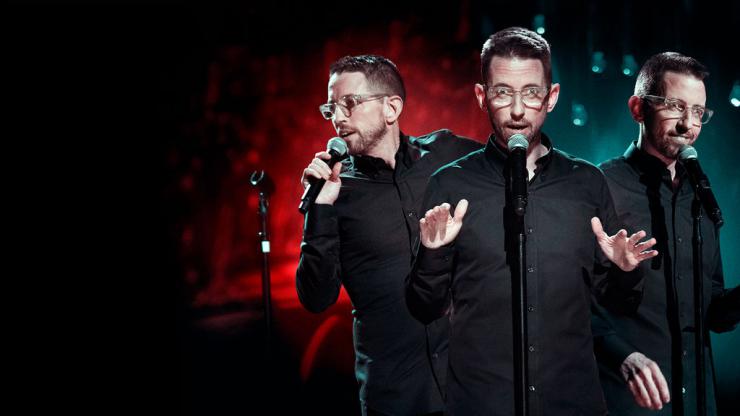
Comedy has become, in this imperfect analogy, a toaster. It’s effective, it’s cheap, and it’s everywhere. If one is just looking for laughs, he or she can pull up YouTube and instantly find several thousand videos of bad lip reading or cats jumping off buildings. Leaving aside the evolutionary implications of such a development (which, I would imagine, are similar to those of pornography), the ubiquity alone necessitates a change. Even if the average consumer hasn’t become jaded just yet, the average comedian very well may be. Speaking as one, I can confidently say that comedians are, by nature, restless. Not only that but, myself aside, they are often extremely smart; it’s no coincidence that humor has been correlated with higher intelligence. Stand-up comedy is hard—it will always be hard, it will always be unnatural, and it can never be perfected—but it is limited. Though it’s just a person with a microphone, it has its psychological constraints, chief among them a certain inhuman quality. It’s simply not natural to expect constant laughter, yet that’s exactly what stand-up does. A “tight five” is not a window into the soul. It requires a performer to be vulnerable, sure, in the same way that baring oneself to an audience always requires a willingness to be vulnerable, but it’s more outward than inward in its focus. Think about the last stand-up set you saw. Did it go any deeper than “So I just broke up with my girlfriend/boyfriend”?
Enter our heroes, Brennan and Birbiglia (you thought I forgot about them, didn’t you?). In 3 Mics and Thank God for Jokes, the comedians do not shy away from the fact that they are comedians. And yet both their shows’ marketing materials used the word “play,” and both were available on TodayTix (traditionally, to that point, a purveyor solely of “theatre” tickets). Previous to Thank God for Jokes, Birbiglia had actually been the harbinger of this unlikely marriage—he of solo comedic quasi-plays Sleepwalk with Me and My Girlfriend’s Boyfriend—but Brennan is a new entrant to the theatre scene. Likewise with Chris Gethard, whose Career Suicide ran at the same Bleecker Street Theatre late last year (with Judd Apatow producing) to rave reviews. None of the three men is primarily an “actor” (though Gethard did briefly take over for Jon Heder on the short-lived Comedy Central show Big Lake) and none is exceptionally famous. But all felt the need, in this burgeoning one-to-one world, to get just a little more personal.
This would probably be a good time to talk about the shows, and what makes them unique. In 3 Mics, Neal Brennan alternates between speaking into—you guessed it— three mics. One mic is for one-liners, one mic is for traditional stand-up, and the middle mic is for what he calls “personal shit”—stories about depression, alcoholism, and the decidedly unfunny parts of his semi-famous life. Parts of the show highlight what the Brennan diehard Chappelle’s Show fans like me love—the stories of dating celebrities, the jokes about being “the white friend”—but other parts are very dark. For Brennan, depression is not an occasional visitor in his world of laughs, it is the ground beneath his feet. He hasn’t had the easiest time, despite outward appearances, and has finally found an arena in which to share that story.
Thank God for Jokes is much lighter, but it similarly breaks with established comedy conventions. Birbiglia performs something akin to a traditional “solo show”—the age-old (and much maligned) form more associated with actors (like Emma Stone’s character in La La Land). Birbiglia takes a nice, easy premise—that he is grateful for the influence of comedy on his life—and weaves together anecdotes and jokes to prove his point. He doesn’t really go dark (a defining moment of the piece is his use of the pun “Mouseachusetts”), but he isn’t “just here to talk about some stuff” either. It’s not standup, it’s not sketch, it’s not really a play—it’s something different. It’s PCT.
Similarly, Gethard (who has made a name for himself around the Upright Citizens Brigade as its resident weirdo, even starting a public access show that got picked up by Fusion) tried something different as well. Although I was not able to see his show, I know it was about, among other things, suicide. Again, not standup. But a solo show? Not exactly, still really funny. Again, PCT.
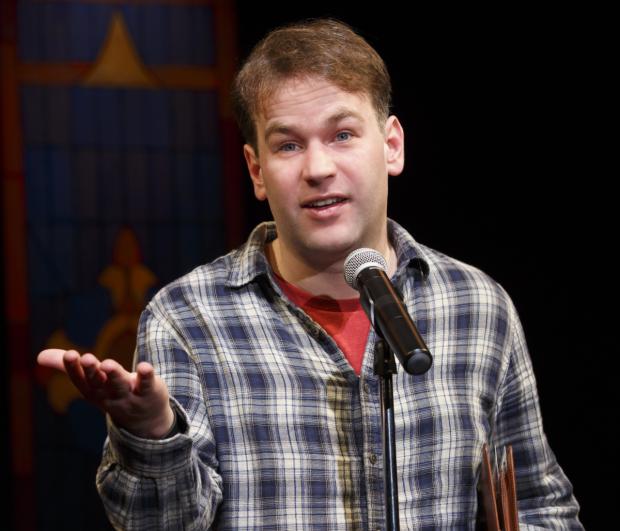
What does this all mean? Well, it means there have been, as of late, a number of comedians willing and able to experiment with their own definitions of theatre. It means traditional theatre and traditional comedy are approaching a new kind of marriage, one that hasn’t been tried in its current form. It’s only fitting that, in an era less defined by labels, artists are feeling freer to bend the rules. And selfishly, I hope this all points to more of these shows being created, by more and more diverse voices. I hope it signals a newfound flexibility in the way comedians look at comedy, and a newfound willingness to grace the Great White Way and its arteries with innovative, personal, and complex fare.
The prerequisites are there. For one thing, producing such shows seems easier than ever. There is clearly a market; Birbiglia has created his own cottage industry, becoming a sort of latter-day comic Eric Bogosian. And as Apatow produced Gethard’s show, John Legend produced Brennan’s (Brennan even made the joke that half of the audience probably came because they saw Legend’s name). Not only that, but the productions have found life beyond the theatre. As of recently, 3 Mics and Thank God for Jokes are both available on Netflix. Career Suicide is now as well. With such an appetite for low production value stand-up on Netflix and elsewhere, what’s to stop the digital sphere from seizing on many such examples of PCT? I say to any digital bigwigs who may be reading, as well as to the theatre community: nothing.
Seeing as HowlRound is primarily a theatre resource, let’s set aside for a moment the implications of PCT on comedy. What does the form’s rise mean for theatre? Surely the Hamiltons of the world won’t be forced out by the experimenting Ali Wongs. I believe that PCT will have more of an effect on comedy and comedians than on theatre. It is, by nature, closer to the world of comedy than the world of theatre, though that has the potential to change. PCT is also, as I’m sure some of you have noted, similar to the evolving medium of performative storytelling, popularized by forums like The Moth. Because of the people doing it, though, and the level of writing and adherence to form, it is closer to theatre than storytelling (which is a big reason why the referenced shows were marketed as plays).
Regardless, I don’t foresee New York and Chicago becoming overrun with deeply personal, yet funny, one-or-two-comedian plays. However, I can envision a future of more direct, immediate, and real takes on the comedy to which we’ve become accustomed. And because of PCT’s room to grow and change, it could easily adopt more aspects of theatre like set, costumes, and multimedia. Over time, I believe this new wave of comedy will become more and more like theatre, and that will be beautiful. After all, for all the talk that theatre is dying, it still does humanity exceptionally well… and humanity is at a premium. As people get tired of laughing at digital cats, they will seek out real live humans. And not necessarily humans who are trying to make them laugh, or playing characters, but who are showcasing themselves. Those humans should, in turn, court the messy feelings, the awkward silences, the autobiographical strangeness that plays best in the intimacy of a hundred people sharing a darkened space.
For PCT, the possibilities are endless. And this is just the beginning.

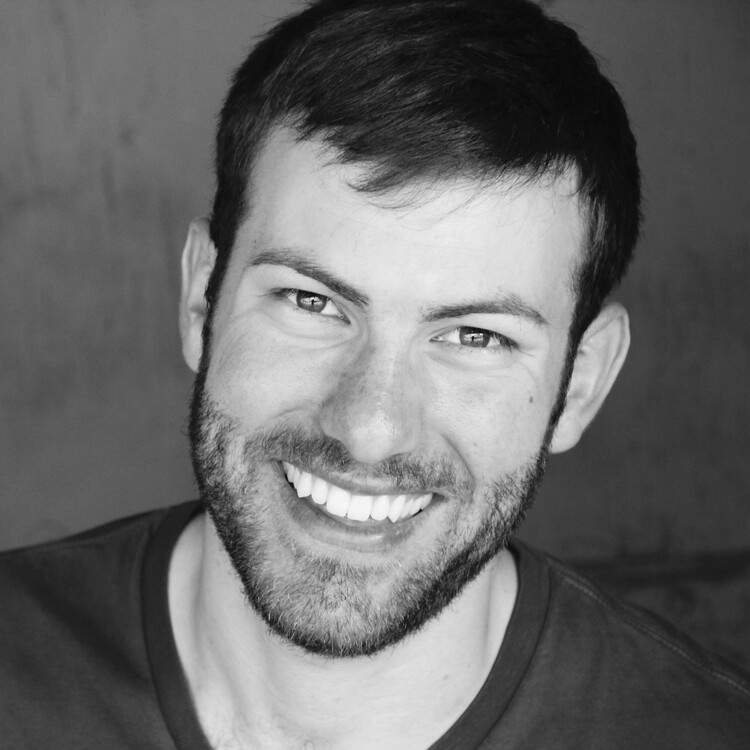
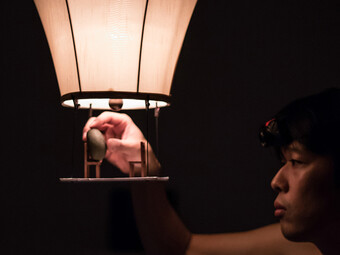

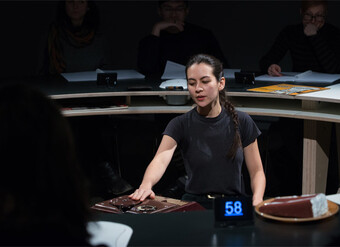

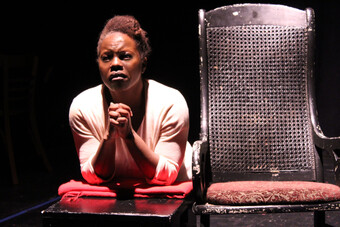

Comments
The article is just the start of the conversation—we want to know what you think about this subject, too! HowlRound is a space for knowledge-sharing, and we welcome spirited, thoughtful, and on-topic dialogue. Find our full comments policy here
Fascinating article! One that helps me understand why, even though I know next to nothing about stand-up comedy or comedians (about the only one I can name is Steve Martin, from the "King Tut" era) lately I occasionally find humorous/painful bits popping into my head (mostly involving my pathetic romantic life [or lack thereof]), and I jot them down in a file, and fantasize about someday doing a stand-up routine.
Of course reading that "it’s no coincidence that humor has been correlated with higher intelligence", and that I share the first name [even the spelling!] of a current popular PCT artist, helps too!
(P.S. As out of touch as I am, I have a very positive impression of Chris Rock because by chance I once happened to briefly pass by a TV playing a DVD of one of his performances, long enough to hear his joke about how, as much as he likes the show "Sixteen and Pregnant", he likes the show that comes on before it even better: "Fifteen and Fuckin'." Never laughed so hard in my life!)